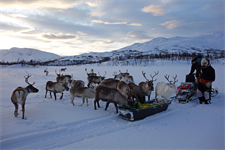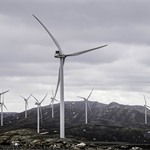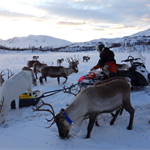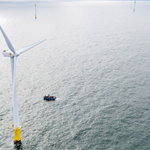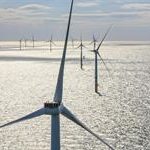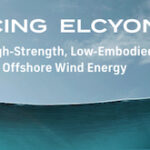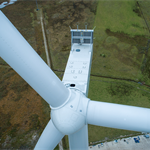Sami group accepts annual compensation deal over Statkraft wind farm
Energy Disrupter
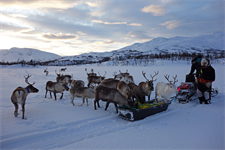
On Monday (18 December) Fosen Vind, the subsidiary of Norwegian state utility Statkraft that runs the complex, said that a group of Sami people impacted by the 288MW Storheia – Fosen wind farm has agreed to a settlement that includes NOK 7 million (around €621,000) a year.
The agreement allows the wind farm to remain in operation, despite a 2021 Norwegian Supreme Court ruling that it and its sister 256MW Roan – Fosen violated Sami human rights and rights to culture by impacting their reindeer herding culture and livelihood.
Sami peoples in the region have conducted a lengthy protest movement in the years following the Supreme Court ruling after its resolutions were not backed up by action from the Norwegian government.
This agreement could see those protests subside, at least as far as Storheia-Fosen is concerned.
Under its terms, Fosen Vind agreed to procure additional winter grazing grounds for Sami reindeer herders in 2026-2027, and grant veto rights over any future extension of Storheia-Fosen past its 2045 operations end date.
However the agreement does not cover the Roan-Fosen wind farm, which is also part of the Fosen Vind complex and as such was ruled to violate the rights of Sami peoples in the region.
Roan-Fosen was also developed by Fosen Vind. It is co-owned by US manufacturer Nordic Windpower (40%), Norwegian energy group TrønderEnergi (30.6%) and German power firm Stadtwerke München (29.4%).
‘Deterioration of trust’
Sami council president Aslak Holberg previously told Windpower Monthly that the lack of action from the Norwegian government on the Fosen Vind ruling had damaged faith in the state and legal system as just arbiters for Sami peoples’ rights.
“I know that for many Sami, it causes a deterioration of trust towards the whole justice system. When we win in court we still lose because the Sami community clearly won the case but still nothing happened,” Holmberg said.
He added that the loss of Sami territory to green energy projects such as Fosen Vind was, from his perspective, a continuation of a longer historical trend.
“I don’t think there is any clear issue that would differentiate this push for energy production in Sami territories to other ways that we have been losing our territories, be that for extensive logging or mineral extraction or military ranges or hydropower construction. So it doesn’t really make a difference why we are losing our areas, because at the root the problem is that we keep losing our territories and that is a trend that has been continuing now for a few centuries,” Holmberg said.
Fosen Vind said the deal agreed with Sami groups over Storheia-Fosen ended a difficult period for all parties.
“Fosen Vind has great respect for the fact that the site has been in a very difficult situation for a long time, and that the process has been demanding and exhausting. We are therefore pleased that, together with the state, and with the good help of the mediation team, we have now reached an agreement that safeguards the reindeer owners’ rights,” a statement from the company read.

